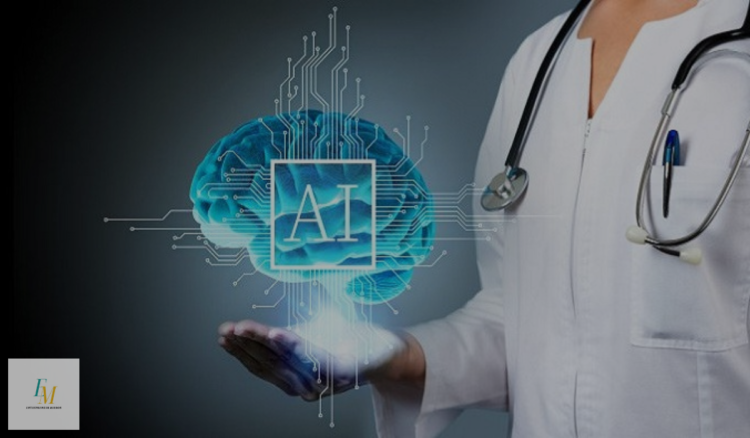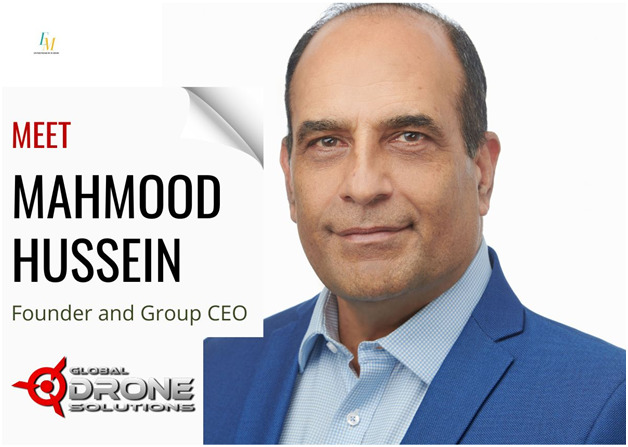Did you know that artificial intelligence or AI in the healthcare market was priced at around 11 billion in 2021 and is predictable to be worth more than 180 billion by 2030? Yes, that is the power of technology. Artificial intelligence is no doubt reigning over other industries like the corporate world, education, etc. But it isn’t stopping anywhere here. According to experts, the healthcare industry is blossoming and has potential increment and progress in the coming years if we continue to use this technology. From hospitals to pharmacies and biotechnology companies, artificial intelligence in healthcare, and more, it benefits all sectors of medicine and Just How!
Basically, the healthcare industry is undergoing a profound transformation with the increasing application of Artificial Intelligence (AI) and Machine Learning (ML) technologies. With better ML algorithms, more accessible data, cheaper hardware, and the advent of 5G, AI is accelerating the pace of change in the medical field. From improving healthcare operations to enhancing patient experience, AI is revolutionizing how we approach medicine. In this post, we will explore the myriad benefits of AI in healthcare, unveiling its potential to optimize efficiency, improve diagnoses, and revolutionize the healthcare ecosystem.
Enhancing Healthcare Operations
AI in healthcare is optimizing operations by streamlining administrative workflows and reducing the burden on medical professionals. By automating paperwork, billing, and appointment scheduling, AI frees up valuable time for healthcare workers to focus on patient care. Virtual nursing assistants, powered by AI chatbots and apps, provide 24/7 access to answers and support, easing the workload on clinical staff. Also, AI can identify dosage errors in patient self-administration, leading to better health outcomes and reduced healthcare costs.
Transforming Surgeries and Medical Imaging
AI-enabled healthcare robots are revolutionizing surgical procedures by enabling precise and minimally invasive surgeries. Surgeons can operate in intricate spaces, reducing blood loss, infection risk, and post-surgery pain. AI also improves medical imaging analysis by accurately identifying abnormalities and assisting in diagnoses. AI in healthcare possesses algorithms that can analyze radiological images with unprecedented accuracy, allowing for early detection of diseases like breast and skin cancer, surpassing human capabilities.
Preventing Healthcare Fraud
AI in healthcare plays a crucial role in preventing fraud, which costs the industry billions annually. AI can detect suspicious patterns by analyzing vast amounts of insurance claim data, such as billing for unperformed procedures or unnecessary tests. Implementing AI-driven fraud prevention systems helps reduce medical premiums and out-of-pocket expenses for consumers, leading to a fairer healthcare system.
Improving Patient Experience and Communication
AI technologies like natural language processing (NLP), predictive analytics, and speech recognition improve communication between healthcare providers and patients. More precise and effective communication enhances patient experience, care, and outcomes. AI also improves healthcare accessibility, allowing telehealth consultations, especially during the COVID-19 pandemic. Telehealth enables medical care to reach underserved communities, ensuring better healthcare access for all.
Increasing Efficiency in Diagnoses
Artificial intelligence in healthcare consists of AI-powered diagnostics that can significantly reduce treatment costs and improve health outcomes. Research has shown that AI algorithms can outperform radiologists in diagnosing cardiomegaly in chest X-rays and identify skin cancer. AI’s ability to analyze vast datasets allows for more precise diagnoses and improved treatment plans, ultimately benefiting patients’ health.
Connecting Disparate Healthcare Data
AI facilitates the gathering and sharing of healthcare information more efficiently. Through machine learning and big data applications, AI in healthcare connects disparate patient data, providing a more unified and comprehensive understanding of individual health. This data-driven approach enhances disease management and drug safety, revolutionizing how healthcare organizations treat and manage diseases.
AI Governance in Healthcare
As AI becomes more prominent in healthcare, ethical and regulatory governance is crucial to ensure responsible implementation. The World Health Organization (WHO) has developed guidelines to address ethical challenges, risks, and transparency in AI healthcare applications. By promoting accountability, equity, and openness, AI can benefit the public and hold healthcare organizations responsible and responsive to their communities.
AI-Driven Drug Discovery and Development
Artificial intelligence in healthcare is transforming traditional drug discovery and development, making it faster and more cost-effective. AI can analyze vast medical literature databases, clinical trial data, and molecular structures through advanced algorithms to identify potential drug candidates and predict their efficacy. This AI-driven approach allows researchers to explore a broader range of possibilities and discover novel treatments for various diseases.
Drug safety and toxicity prediction is another area where AI plays a vital role. High-fidelity molecular simulations enabled by AI algorithms can assess molecules’ toxicity, bioactivity, and other characteristics, reducing the need for physical testing and resulting in significant cost savings. AI can also aid in predicting potential adverse effects, enabling researchers to refine drug compounds early in the development process and ensuring safer medications for patients.
AI in Disease Prevention and Monitoring
As health and fitness monitoring devices become more prevalent, AI technologies can assist in monitoring health issues and providing real-time alerts in case of problems. Patients can share data from wearable devices and health apps with their medical teams, allowing for proactive monitoring and personalized preventive care.
AI’s ability to analyze large datasets makes it invaluable in tracking and detecting infectious diseases. During the COVID-19 pandemic, AI was instrumental in detecting outbreaks, predicting transmission patterns, and assisting public health responses. AI-powered surveillance systems can track and analyze data from various sources, aiding in the early detection and containment of infectious diseases like tuberculosis and malaria.
AI-Driven Population Health Management
AI applications extend beyond individual patient care to population health management. AI algorithms can analyze healthcare data to identify trends, risk factors, and public health patterns. This data-driven approach enables healthcare organizations and policymakers to develop targeted interventions and preventive measures to improve community health.
By leveraging AI and machine learning, healthcare organizations can gain valuable insights into population health, understand disease prevalence, and tailor public health campaigns more effectively. From monitoring vaccination rates to predicting disease outbreaks, AI empowers healthcare providers to safeguard public health proactively.
The benefits of AI in healthcare are vast and diverse, ranging from enhancing efficiency in healthcare operations to revolutionizing diagnosis and drug development. AI’s capacity to analyze vast amounts of data and provide real-time insights has the potential to transform patient care and improve public health outcomes.
As AI evolves, healthcare organizations must prioritize ethical considerations, data privacy, and equitable access to AI-driven solutions. By embracing AI responsibly, the healthcare industry can leverage this transformative technology to address current challenges, enhance medical research, and provide better, more personalized care for patients worldwide. With ongoing advancements and continued ethical implementation, AI is ready to redefine the future of healthcare, paving the way for a healthier and more connected world.
Also Read:






























































